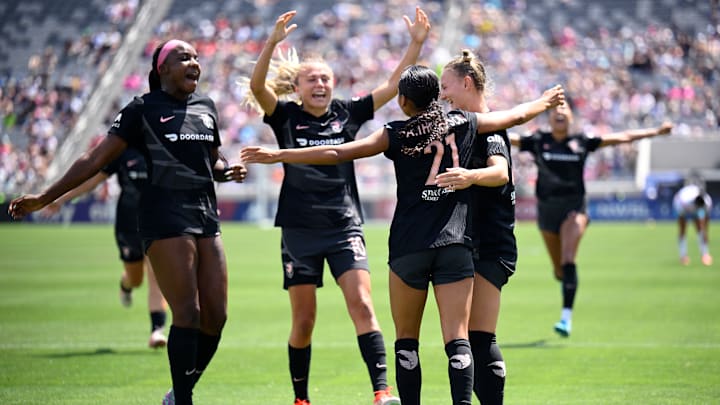Los Angeles has never been a city to think small, and soccer is no different. The most recent example of that big thinking involves two clubs: Los Angeles FC has purchased a stake in Angel City FC, a team from the NWSL. Sklavaritis is just the latest example of how MLS clubs are betting big not only on growth on the field but off it as well. By entering the women's soccer market, LAFC has shown a strategic vision beyond the pitch. The synergy between the two franchises clearly shows how sports today connect to several interests and sectors.
Follow MLS Multiplex on X (Twitter).
Understanding the Deal
The deal between LAFC and Angel City FC was structured initially in the form of a lease contract. These warrants came when the women's team signed on to play its matches at the BMO Stadium, home to LAFC since 2022. Now, this equity stake is exactly what those warrants have translated into. Certainly, in a world where corporate and major investor participation in sports is going up, this move clearly signals the expansion of the NWSL and how women's soccer has just become an attractive sector for investors.
Impressive valuations of the teams: While Angel City is the most valuable franchise in the women's league, valued at $250 million, on the other side, LAFC holds the title of the most valuable team in the MLS, with a valuation of $1.15 billion. What we are referring to here is a powerhouse partnership; the conjunction of two of the most powerful forces in North American soccer.
Women's Soccer on the Rise and the Perfect Opportunity for LAFC
Angel City FC has seen its fair share of ups and downs on the pitch as of late, including those losses that have complicated their run for the NWSL playoffs. This team, however, is a brand powerhouse and a beacon for representation. The club, controlled 40% by Willow Bay and Bob Iger-those big names in the world of business and media-stands to this day as one of the key drivers of women's soccer in the United States.
Evidence also shows this in growing investor interest. In 2022, Angel City added new investors in a Series A round-a proof that the club is viewed as a market opportunity. But on-field challenges persist, and the team must change its approach if it is to compete among the best teams. The team currently sits 10th in the standings and must have a quick turnaround if it is to get one of the eight playoff spots.
It is in this sense that LAFC's involvement makes more sense: not because of a diversification of the investment portfolio, but because the MLS club brings in expertise, infrastructure, and a management model already proving to be successful. After all, LAFC is not just any club: It is the most valuable club in MLS, fresh off winning the U.S. Open Cup and looking to make its third consecutive MLS final appearance-something not done since 2007.
This collaboration could give Angel City the missing piece in solving some structural issues and raising the level of the competition on the field. Merging successful management with the existing women's team potential can set up the new benchmark for women's soccer in Los Angeles.
The Synergy Between Two Giants
But at the middle of this partnership is the BMO Stadium, home to both LAFC and Angel City. Beyond just sharing a venue, the clubs now have the opportunity to do something special: creating a connection from men's to women's soccer beyond the pitch. That means shared marketing, combined events, and offering up the chance to attract a crossover fanbase that few cities can pull off.
Put simply, this is not a synergistic marketing play between two sports giants; this would fortify the sport of soccer within Los Angeles. As women's sports continue to gain more space and respect, this deal between LAFC and Angel City may prove to be a real turning point for the growth of women's soccer in America.
